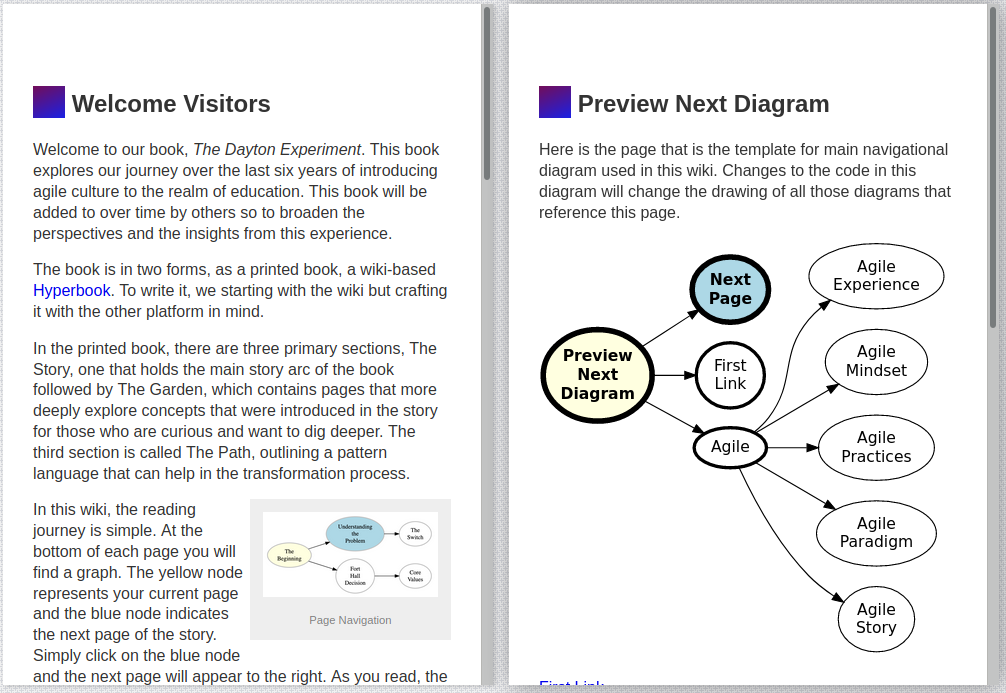org-roam has a nice feature that lets you graph the notes in your wiki and the links between them. I just saw that there’s a pull request to produce that map for the current note.
When that lands, I’d like to try and hook up my publish step to add the note-specific graph to each published page. That’d give a navigation path something like the one in FedWiki:

Though I would still want my own curated paths in addition to this generated map o’ everything.
